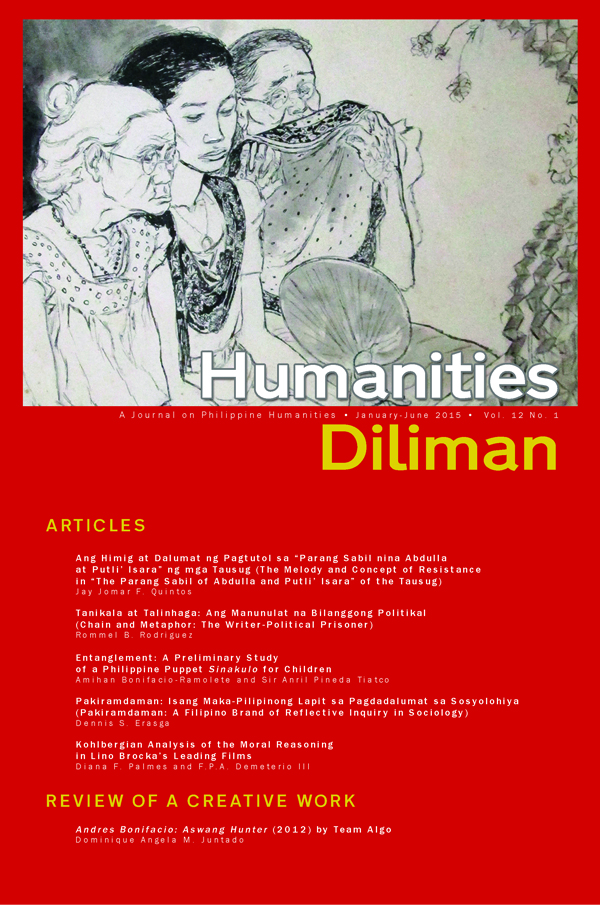Tanikala at Talinhaga: Ang Manunulat na Bilanggong Politikal (Chain and Metaphor: The Writer-Political Prisoner)
Abstract
In the discourse of Philippine national history, the ethnolinguistic groups in the marginalized islands of Visayas and Mindanao play an important role in the construction of the nation. For instance, the parang sabil of the Tausug may be considered as a form of resistance against the colonizers vis-à-vis the 1896 revolution of the Katipuneros in Luzon. The term parang sabil comes from parang, meaning war or sword, and sabil, meaning killed in the way of God. It is a traditional Tausug practice by which the Tausugs defend their religion Islam against the threatening infidels. This paper will make use of an ethnic narrative song of the Tausug of Sulu entitled “The Parang Sabil of Abdulla and Putli’ Isara,” as a tool to understand how the group fought based on their cultural beliefs, from the armed struggle against a country who treats them as outsiders up to the battles invoked in the name of religion.
Keywords: Folk literature, ethnic studies, Mindanao studies, Spanish colonialism in the Philippines


